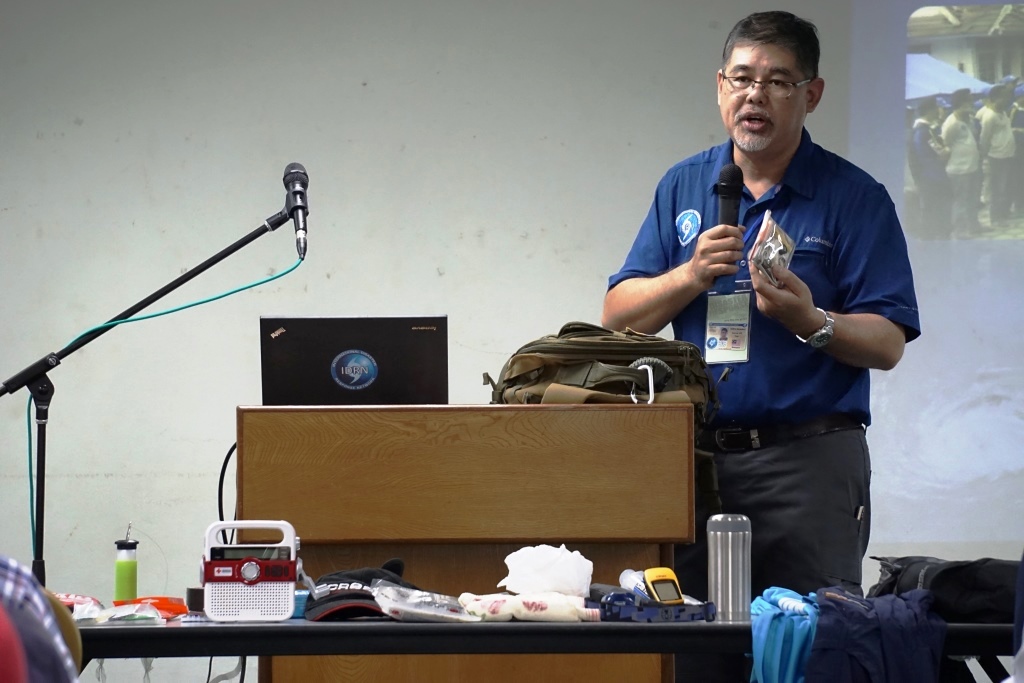
You are stuck in a massive traffic jam in Subang Jaya SS15. It is raining hard and the water is rising fast. What do you do? Abandon your car? Climb to the roof?
You are on the highway, a lorry transporting hydro-chloric acid (it’s more common than we think) had just crashed. Acid fumes are blowing your way. Which direction do you flee? Can you drive fast enough?
While picnicking at a waterfall, a child falls into the water, how are you going to save her?
You are holidaying in Japan, shopping at Shinjuku. An earthquake alert goes off, which is the safest place to flee to?
Those were scenarios posed to us. It will never happen to me…
Think again. Natural disasters are on the rise. Even if Malaysia seems safe, it can happen in places we go for holidays! Like Phuket and Nepal where some of our members had personally experienced a tsunami and earthquake while on holiday.
The IDRN (International Disaster Response Training) organised by NECF (jointly with World Vision, CREST and other NGOs) from 13th-15th May, 2015 saw more than 20 people from FGT attending. From youths to adults, men and ladies. Maybe we are the pessimistic ones.
IDRN’s mission is to train up communities. The locals are the largest stake holders when disasters strikes. Guess how long it takes to receive aid when a disaster strike? Don’t call 999 and expect the ambulance and firemen to reach you in minutes or even half an hour or even 1 hour or even 1 week or even months. Some flood victims never received help during the East Coast floods! Neither did some of Hurricane Katrina’s victims in USA. Disasters are events which exceeds the government’s capacity to handle. That’s why.
That’s why we should get trained according to the IDRN folks. So we will have a better chance of survival and help others! Churches rose to the occasion during the East Coast floods. First time relief volunteers answered the call to mobilize the collection of food, blankets, medicines and other relief items, distribute these items, clean houses and much more
So you missed this one. It’s okay.
- Don’t miss the next one! Those who are interested to be relief volunteers need to go for ongoing training, anyway
- Go for First Aid training
- Participate in outdoor skills events
- Read up and prepare your Go-Bag (find out what this is!)
If you can’t help yourself, you can’t help others.
